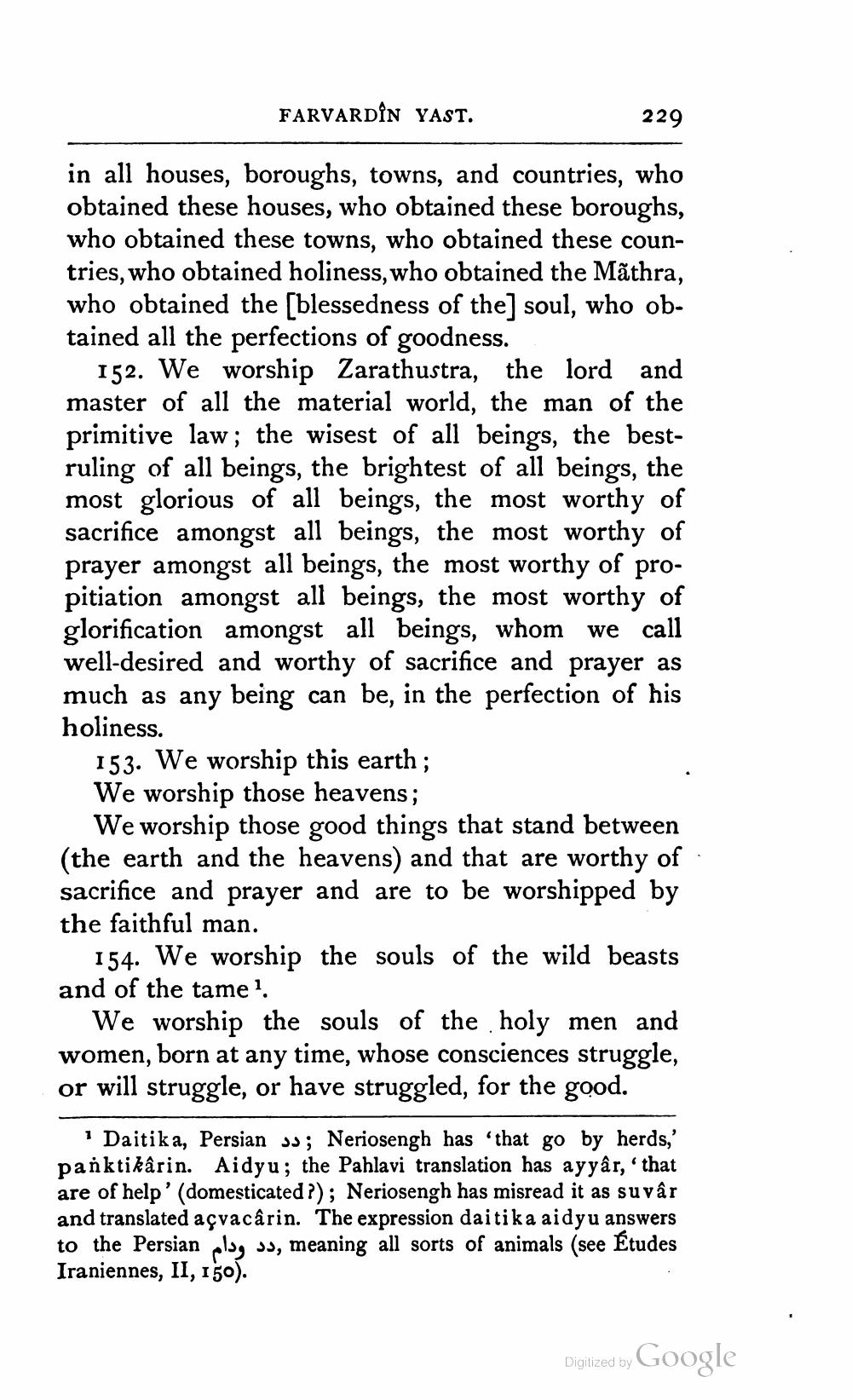________________
FARVARDİN YAST.
229
in all houses, boroughs, towns, and countries, who obtained these houses, who obtained these boroughs, who obtained these towns, who obtained these countries, who obtained holiness, who obtained the Mãthra, who obtained the [blessedness of the) soul, who obtained all the perfections of goodness.
152. We worship Zarathustra, the lord and master of all the material world, the man of the primitive law; the wisest of all beings, the bestruling of all beings, the brightest of all beings, the most glorious of all beings, the most worthy of sacrifice amongst all beings, the most worthy of prayer amongst all beings, the most worthy of propitiation amongst all beings, the most worthy of glorification amongst all beings, whom we call well-desired and worthy of sacrifice and prayer as much as any being can be, in the perfection of his holiness.
153. We worship this earth; We worship those heavens;
We worship those good things that stand between (the earth and the heavens) and that are worthy of sacrifice and prayer and are to be worshipped by the faithful man.
154. We worship the souls of the wild beasts and of the tamel.
We worship the souls of the holy men and women, born at any time, whose consciences struggle, or will struggle, or have struggled, for the good.
Daitika, Persian us; Neriosengh has that go by herds,' pankti kârin. Aidyu; the Pahlavi translation has ayyâr, that are of help' (domesticated?); Neriosengh has misread it as suvar and translated acvacârin. The expression daitika aidyu answers to the Persian pls, ss, meaning all sorts of animals (see Études Iraniennes, II, 150).
Digiized by Google




